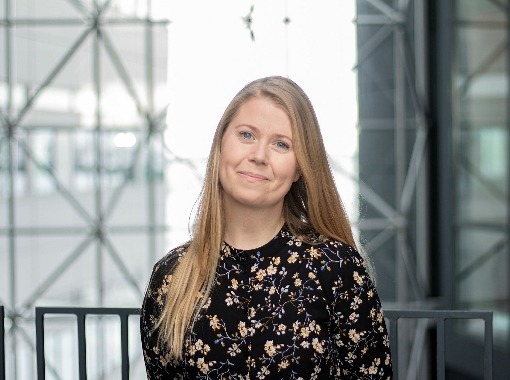Doctoral defence in Mechanical Engineering - Marta Rós Karlsdóttir

Veröld - Hús Vigdísar
Room 023
Ph.D. student: Marta Rós Karlsdóttir
Dissertation title: High-temperature geothermal energy utilization in the context of EU climate and energy policy – life cycle environmental impacts and primary energy demand
Opponents:
Dr. Peter Bayer, Professor at Martin Luther University of Halle-Wittenberg, Germany
Dr. Maria Laura Parisi, Assistant professor at the Department of Biotechnology, Chemistry and Pharmacy at the University of Siena, Italy
Advisor: Dr. Ólafur Pétur Pálsson, Professor at the Faculty of Industrial Engineering, Mechanical Engineering and Computer Science, University of Iceland
Doctoral committee: Dr. Halldór Pálsson, Professor at the Faculty of Industrial Engineering, Mechanical Engineering and Computer Science, University of Iceland
Dr. Jukka Heinonen, Professor at the Faculty of Civil and Environmental Engineering, University of Iceland
Chair of Ceremony: Dr. Rúnar Unnþórsson, Professor and the Head of the Faculty of Industrial Engineering, Mechanical Engineering and Computer Science, University of Iceland
Abstract:
Geothermal energy utilization contributes to less than 0.5% of the world’s electricity demand and is not well represented in energy policies and environmental studies of energy systems. Research on geothermal potential and environmental impacts shows that geothermal energy can contribute to a low-carbon future and increased share of renewables in future energy systems, wherever access to geothermal resources is technically and economically feasible. Furthermore, geochemical conditions have to be favorable, as gaseous emissions are byproducts of utilizing high-temperature geothermal resources, where fluids are hotter than 150°C at 1 km depth below the surface. These include greenhouse gas (GHG) emissions that can be as high as emissions from fossil-fueled power plants in rare instances.
The recent climate and energy targets of the EU “clean energy for all” package for the year 2030 are set to reduce GHG emissions, increase the share of renewables within the EU energy mix, and increase energy efficiency and lower demand across the energy sector. This study investigates how the current EU climate and energy policy supports high-temperature geothermal utilization in future energy systems by comparing life cycle assessment results to the 2030 targets. The methodology of life cycle assessment (LCA) was applied to a case study of a state-of-the-art, high-temperature geothermal combined heat and power plant located in Iceland. LCA provides a holistic approach to analyzing various environmental impacts, including GHG emissions and primary energy demand, which serve as a basis for the EU targets. Detailed life cycle inventory (LCI) data was collected for the study since such data is not readily available in LCA literature or databases for geothermal applications. Furthermore, different allocation methods used to divide the environmental impacts between heat and electricity were tested to observe their impacts on the overall results.
The overall results showed that life cycle GHG emissions of high-temperature geothermal utilization are comparable to other renewable energy technologies and thus can contribute significantly to lowering emissions associated with energy use by replacing fossil fuels. However, due to the low thermal efficiency of electricity generation from geothermal, its increased use does not result in the desired increased energy efficiency, as measured by the EU targets in terms of primary energy demand, when added or replacing older technologies in the current energy system. However, the study results suggest that emphasis could instead be put on the non-renewable primary energy demand to ensure that renewable technologies such as geothermal utilization do not contradict the EU energy efficiency target. The study also identifies H2S emissions as a hotspot for high-temperature geothermal utilization as the gas contributes to acidification and human toxicity potentials. The results suggest that a barrier exists in current EU policy that may hinder geothermal energy from becoming one of the desired solutions to reach the 2030 climate and energy targets.
About the doctoral candidate:
Marta Rós Karlsdóttir was born in 1982. She graduated with a BS degree in Mechanical Engineering from the University of Iceland (UoI) in 2007, where a part of her studies was fulfilled at Norwegian University of Science and Technology (NTNU). In 2008, she graduated with a MS degree in Mechanical Engineering from the UoI, with focus on geothermal utilization. Parallel to her studies, Marta has held the position of managing director of natural resources at ON Power, been a part time lecturer at UoI and a guest lecturer in life cycle assessment, renewable energies and geothermal utilization. Her parents are Gunnjóna Sigrún Jensdóttir, registered nurse, and Karl Laxdal Snorrason, MS in network engineering. She lives with her spouse, Björgvin Lúther Sigurðarson, and their children in Reykjavík, Iceland.
Marta Rós Karlsdóttir



